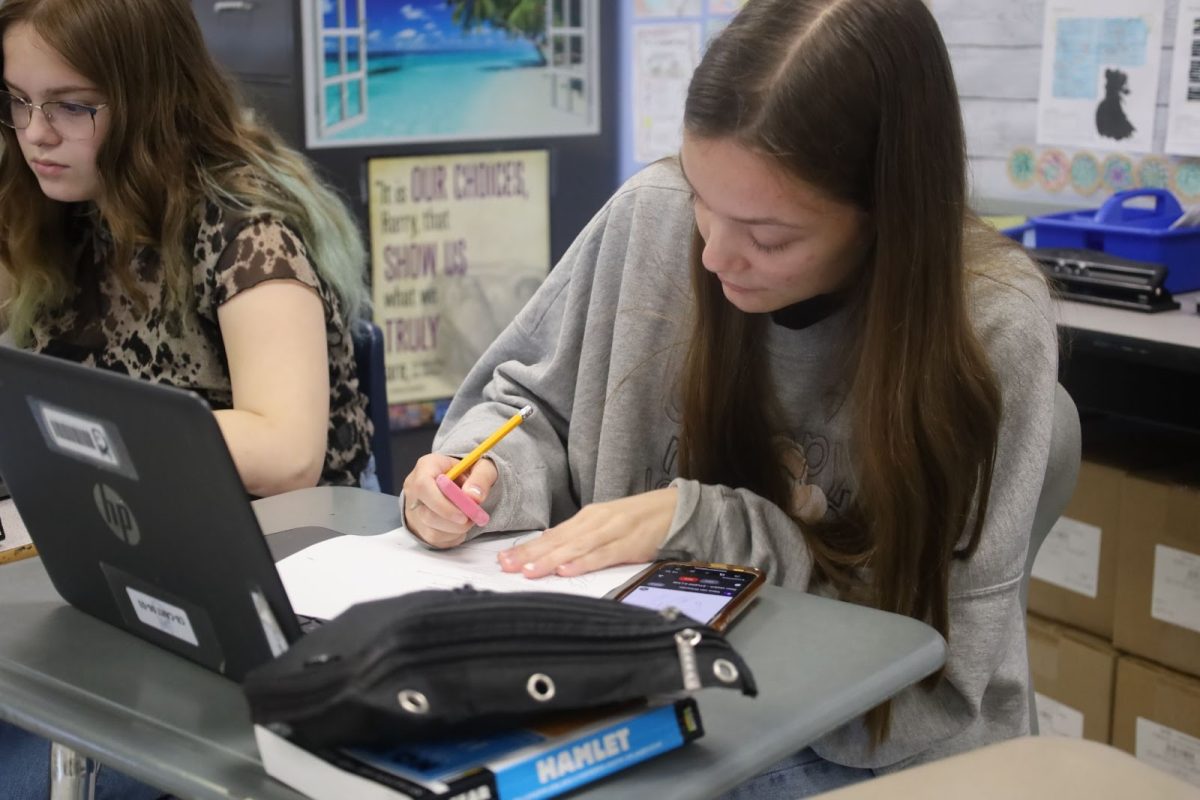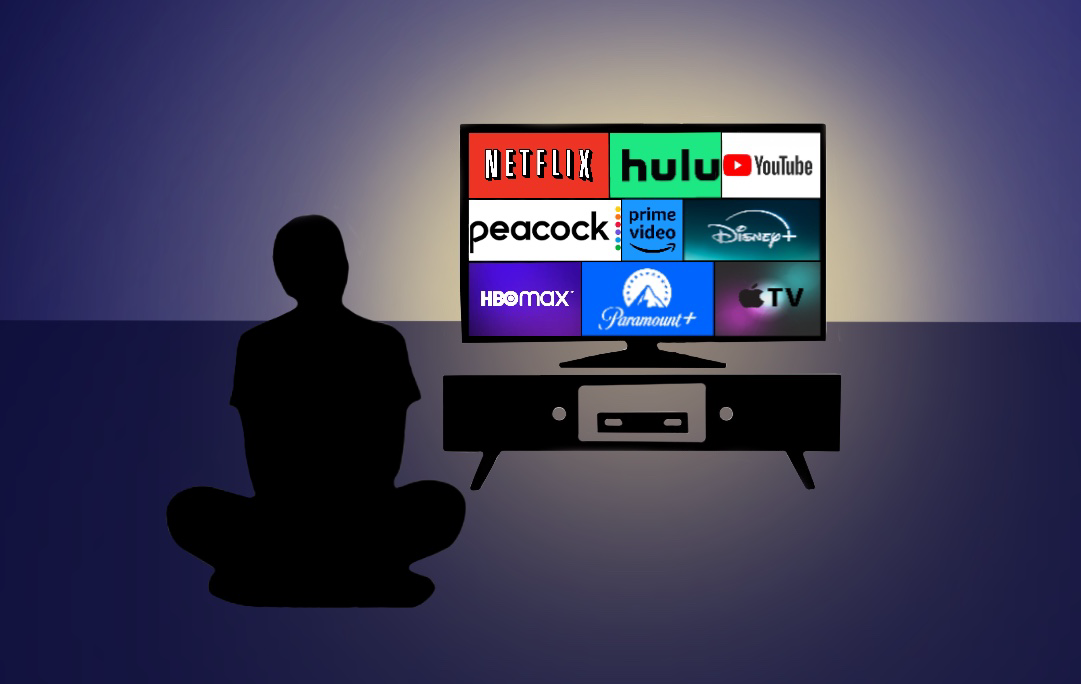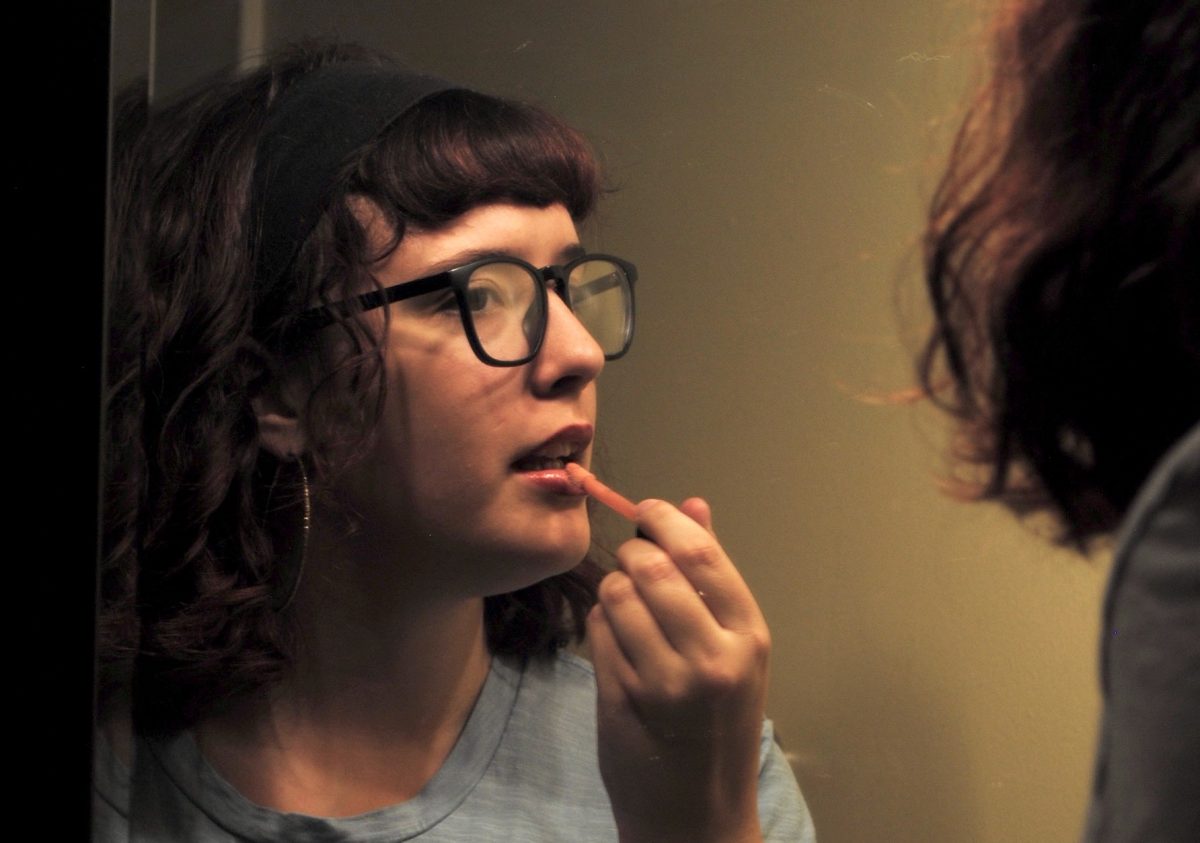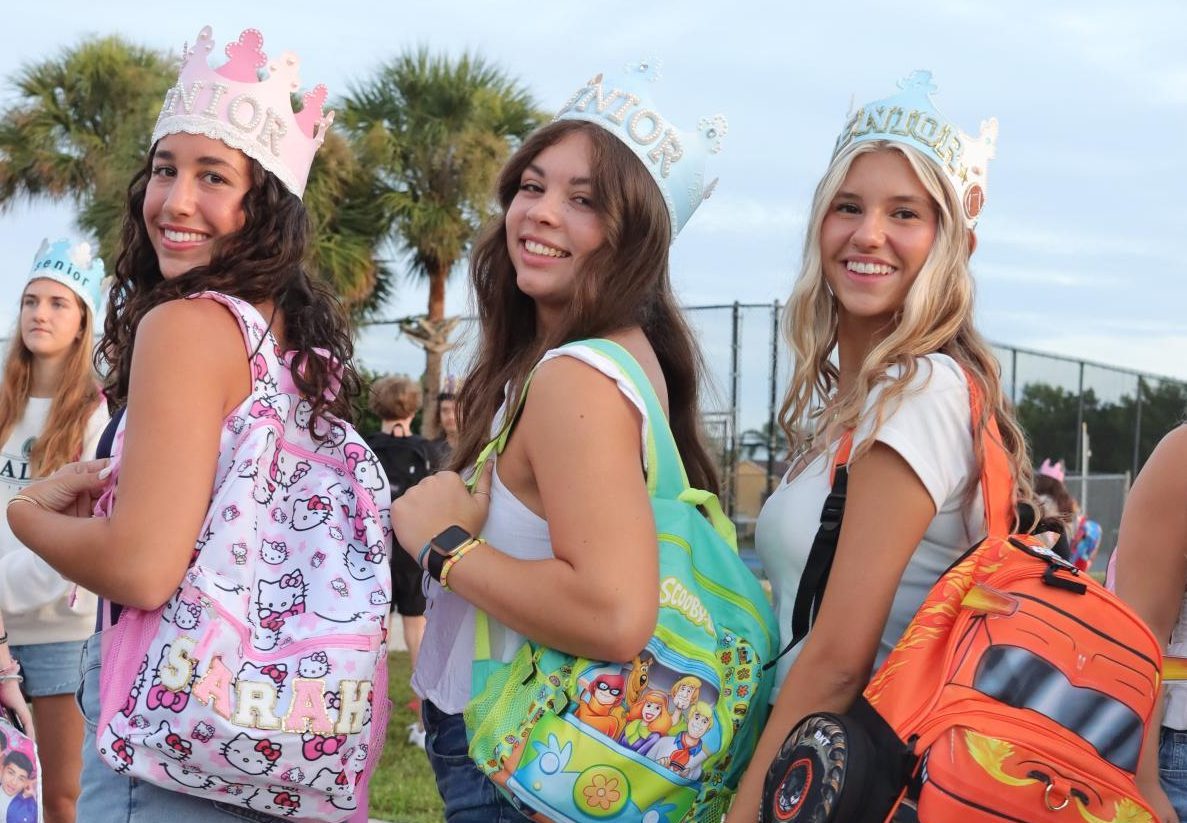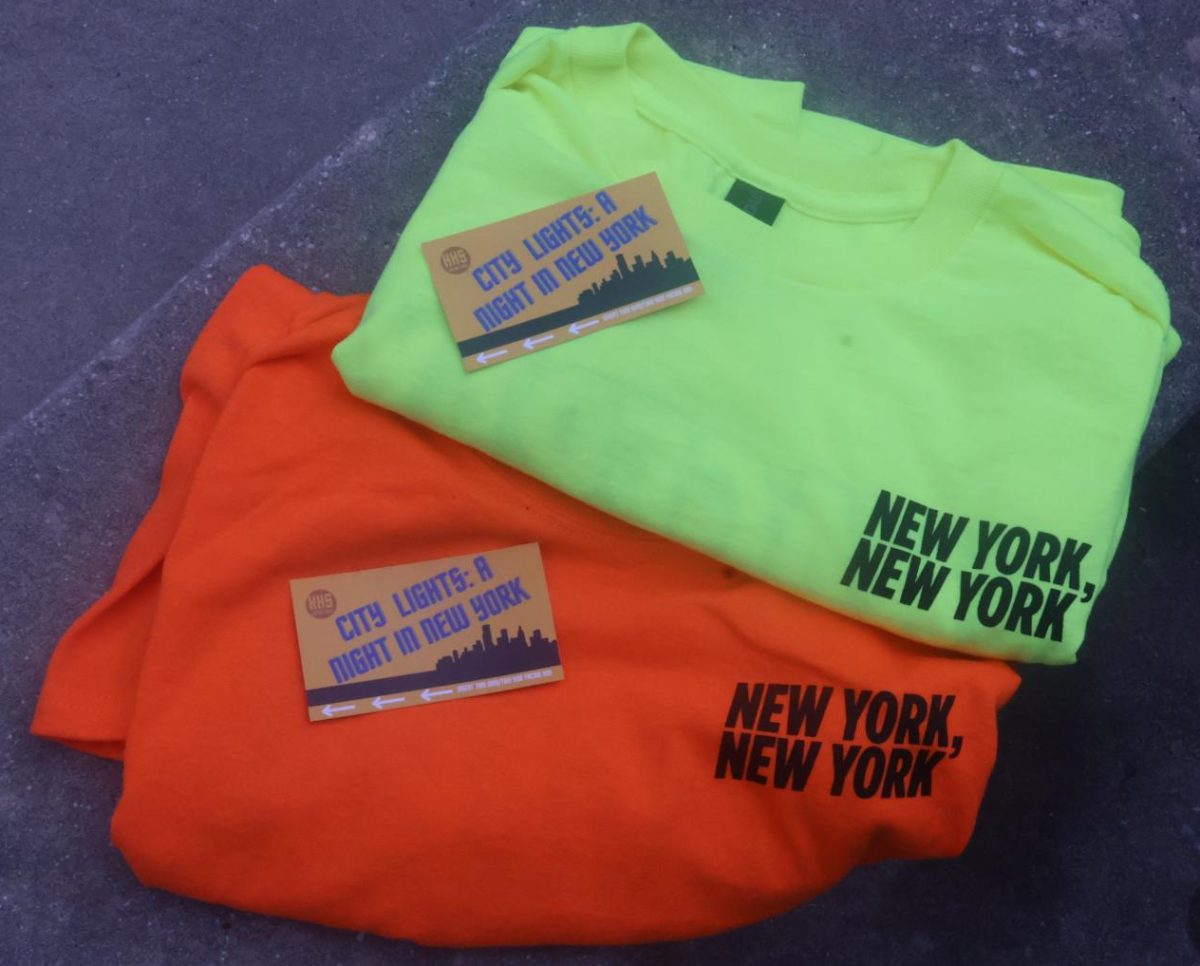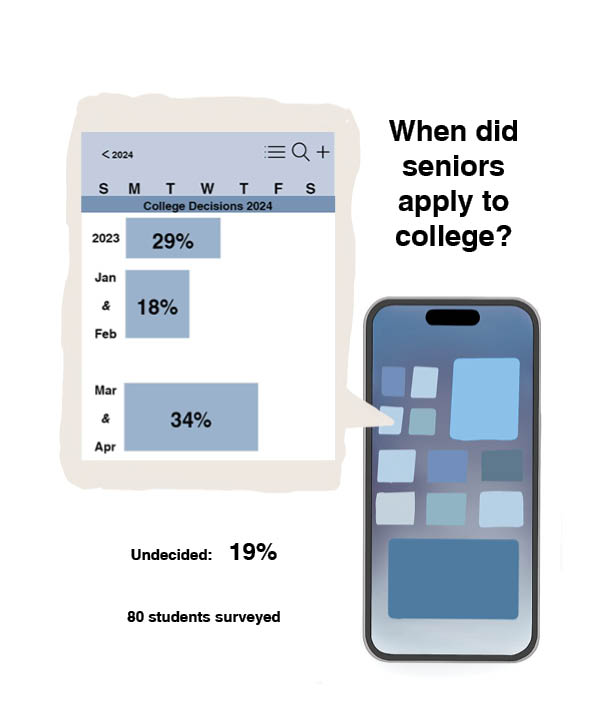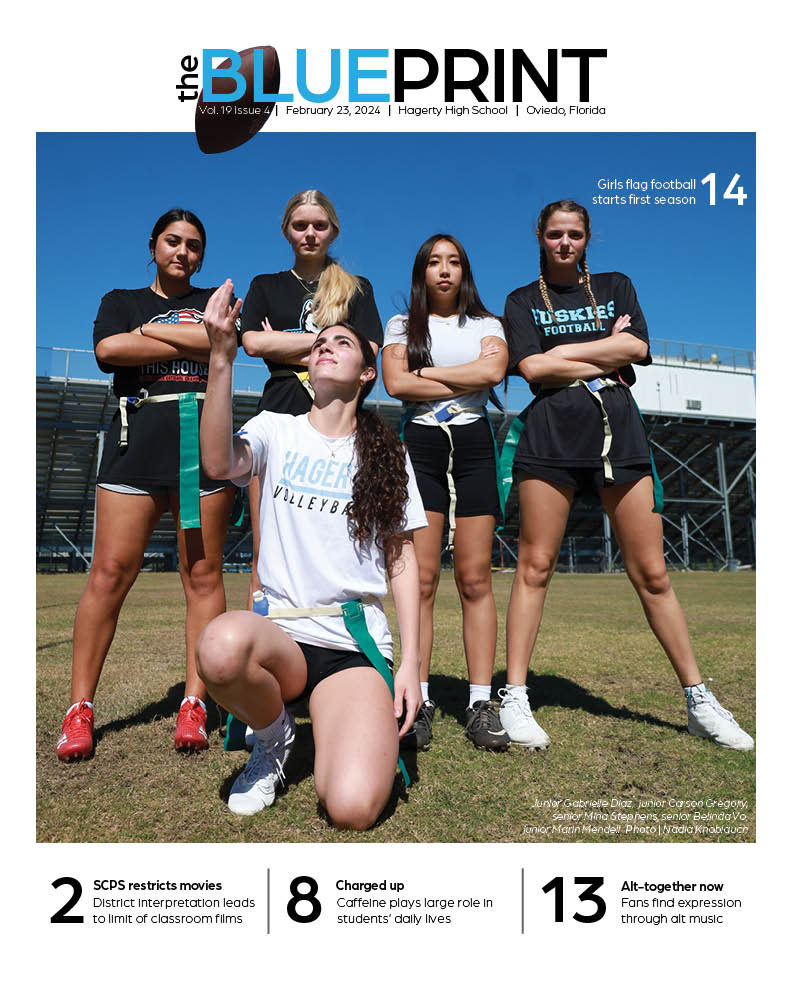If you told someone from 100 years ago that there would be a place where people could communicate with anyone in the world at any time, with transactions that linger forever, and with access to tens of thousands of lifetimes worth of content all with a click of a button—they’d burn you for suspected witchcraft.
It’s been said a million different times in a million different ways that social media can be incredibly dangerous. And contrary to the belief of pestering schools and parents, Most teenagers are careful on the internet, and take precautions to maintain their online safety and privacy. However, it is still very easy to make mistakes—especially in “low-risk” situations.
“I don’t want to send something that’ll hurt me in the long run, so I’m pretty careful,” sophomore Ethan Peabody said.
It’s worth mentioning that all social media apps have built in privacy settings. On Snapchat, people can only receive messages if they add the other person back. And all social media apps have a block option. On apps such as Snapchat and Instagram, people can post stories, which are timed posts, and disappear after a certain amount of time. A private story can exclude certain people from seeing a post, even if they follow you. On Instagram, people have the option to either make their account available to everyone, or only let certain people view their account. These privacy settings give many students peace of mind when posting online.
“It’s more comfortable [to keep my social media private] because there’s some creepy people on there,” sophomore Solimar Servin said.
However, even with the ability to choose who sees what, most teens still deal with posting or sending something that they later regret. A YouGov Omnibus survey showed that 57% of Americans have social media regrets, with 16% having regrets at least once a week.
There are some people that are not as careful, though. Usually, if someone accidentally posts something sensitive, friends or family will catch it, whether you want them to or not.
In one instance, a girl posted something private to her Instagram, and all her friends, family and classmates found it.
“It was shocking. I feel like when stuff gets leaked or found, not only is your reputation ruined, but you now have no control over what people can do with your private information. It’s really scary,” Jenna* said.
Another common issue is when students post things that don’t age particularly well. This doesn’t just apply to shameful cringey jokes or a reference to a future tragedy; it can be much smaller, like a post about how you and your current romantic partner will “stay together forever.”
For example, Joan* had an ugly break-up with their ex-best friend. The two used to make lots of Tik Toks together, many of which are still up today.
“They pop up for me every now and then. It always leaves a sour taste in my mouth seeing how [they] sort of used me for clout and would always try to push my boundaries, getting too touchy and all that. I’d think I moved on but then see an old video on my For You Page and get really nauseous,” said Joan.
At the end of the day, however, when you post something, it is almost always expected for it to be seen by everyone. But private messages? Private stories? There’s a level of trust with those, so some students get more risky with what they send, since the risk doesn’t appear to be as great.
“I don’t feel like it’s about posting, it’s about people sending stuff they regret, [like with] leaking [sensitive content]: it’s how a lot of people get back at their exes, and once you send something you have no idea where something will end up,” sophomore Jane* said.
That level of trust with posting on private stories, or messaging people directly can also be equally damaging when that trust is kept, and the messages and information stays private.
For instance, Jane got in the middle of a fight between a partner and one of their friends. It quickly escalated and one of them posted the other’s address on their story, encouraging his friends to ‘keep [them] in line.’ Because the whole situation was kept private, there was little chance of them facing consequences for their actions, since no one would report it.
“It escalated a lot,” Jane* said. “There wasn’t a chance for any adults to find out.”
The threats got more extreme, with various acts of physical assault being threatened and planned by both parties.
“While nothing ended up happening, it probably could’ve,” Jane said. “Since no one was really innocent, no one reported each other, which just made the whole thing very uncertain. I was honestly really scared, and I hadn’t seen that side of either of them before.”
Social media has an effect of amplifying all aspects of life: the good, the bad and the ugly. As social media becomes a bigger and bigger part of the lives of teens everywhere, so will the importance of finding ways to safely and smoothly navigate it.
“I think people should be safe with [social media],” sophomore Chloe Rhodes said. “Responding to messages from people you don’t know isn’t safe, and posting stuff that is inappropriate also isn’t safe. As long as you have fun with it, and you’re nice to everybody, just stay safe on the app, I don’t think there’s a problem with it.”
*names changed for privacy

